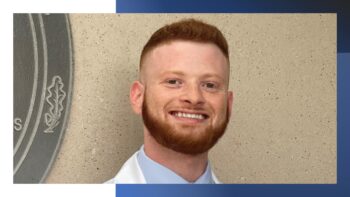
Jared Rhodes
(Mentor James Goldenring, MD, PhD)
Jared won the best student graduate poster at the 23rd Annual Retreat for Cancer Biology! His research in Goldenring Lab examines fibroblasts and how they have recently been shown to promote the dysplastic transition of metaplastic lineages in the stomach. Specifically, conditioned media (CM) from gastric metaplasia and cancer-derived fibroblasts accelerated dysplastic progression in metaplastic gastroids. It remains unclear which factors secreted from fibroblasts cause this progression. Therefore, he performed scRNA-sequencing on normal, metaplasia, and cancer-derived fibroblasts. This revealed expression differences of many secreted factor encoding genes. Metaplastic gastroids were cultured in 30 and 50 kDa filtered CM from cancer-derived fibroblasts to narrow down candidate factors. 30 kDa filtrate CM enhanced dysplastic progression of metaplastic gastroids compared to 50 kDa filtrate. Therefore, they looked specifically for genes encoding 30 kDa or fewer proteins and found high SPON2 expression only in metaplasia and cancer-derived fibroblasts. SPON2 is a 30 kDa secreted protein shown to promote the proliferation and migration of gastric cancer cells. Therefore, they hypothesize that fibroblasts secrete SPON2 to induce dysplasia. The presence of SPON2 in CM was confirmed with mass spectrometry, detecting SPON2 only in metaplasia and cancer-derived fibroblast CM. Furthermore, STAT3 inhibition was evaluated because SPON2 has been shown to promote downstream signaling through STAT3. A STAT3 inhibitor suppressed the effect of cancer-derived fibroblast CM in the dysplastic progression of metaplastic gastroids. These are the first studies investigating fibroblast-derived SPON2 in the induction of precancerous gastric dysplasia. Understanding factors that contribute to gastric dysplasia represents an important area of research, as gastric cancer remains one of the leading causes of cancer-related deaths worldwide.
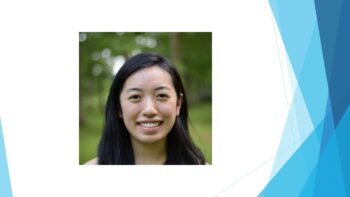
Yunli (Emily) Chu
(Mentor Brent Ferrell, PhD)
Emily won the Best Talk award at the 23rd Annual Retreat in Cancer Biology! Emily’s research discusses Cytotoxic chemotherapy, which has been the mainstay of acute myeloid leukemia (AML) treatment. There are no approved immunotherapies for AML due to our limited understanding of how CD8+ T cells respond to AML progression. To investigate CD8+ T cell dynamics in AML, we transplanted leukemic cells bearing the MLL-AF9 translocation into immunocompetent mice. Leukemic mice exhibited a shift in CD8+ T cell phenotype toward activation, characterized by reduced naive cells, increased effector cells, and elevated CD69 expression. Surprisingly, high-dimensional phenotyping using mass cytometry identified an enrichment of PD-1 and LAG-3 expressing T cells. Ex vivo stimulation demonstrated heightened TNF-α and IFN-γ production by leukemia-associated T cells. To test if the cytokine milieu is sufficient to induce the phenotypic changes, we stimulated isolated, naive CD8+ T cells in conditioned media containing serum from healthy or leukemic mice. Interestingly, exposure to the AML cytokine milieu alone failed to induce the phenotypic changes observed in vivo. These findings suggest that other factors, such as receptor-ligand interactions and nutrient competition, may play more prominent roles in shaping T-cell responses in AML. In summary, these studies highlight that AML can profoundly influence the phenotype and function of CD8+ T cells. AML induces a dysfunctional phenotype in CD8+ T cells, though functionally, these cells produced more cytokines. It is possible that the secretion of inflammatory cytokines by CD8+ T cells contributes to AML cell proliferation. Future studies will focus on the mechanisms underlying phenotypic changes and immune escape in AML, seeking ways to disrupt these interactions.
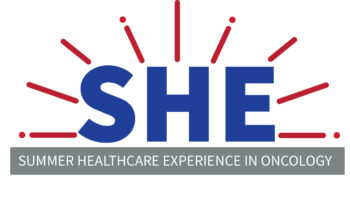
VICC Summer Healthcare Experience in Oncology is a 2-week virtual experience for high school girls. July 8 – 19, 2024, Monday – Friday, 9:30 am – 1:30 pm. Applications are due by April 8, 2024. Questions? Please contact she@vumc.org
 Chi Yan, PhD is happy to share a newly published Review article on CD40-based cancer immunotherapy. Harnessing the potential of CD40 agonism in cancer therapy. Cytokine & Growth Factor Reviews. Our very capable undergraduate researcher, Maggie (Yang) Zhou, wrote this article. “This is an outstanding review—well-written, comprehensive and beautifully illustrated. It was accepted without revision,” said CGFR Editor-in-Chief. We are also pleased to hear today that Maggie received an offer to the PhD program from MD Anderson Cancer Center. Well done, Maggie (Yang) Zhou! We are proud of you!!! Chi Yan, PhD is happy to share a newly published Review article on CD40-based cancer immunotherapy. Harnessing the potential of CD40 agonism in cancer therapy. Cytokine & Growth Factor Reviews. Our very capable undergraduate researcher, Maggie (Yang) Zhou, wrote this article. “This is an outstanding review—well-written, comprehensive and beautifully illustrated. It was accepted without revision,” said CGFR Editor-in-Chief. We are also pleased to hear today that Maggie received an offer to the PhD program from MD Anderson Cancer Center. Well done, Maggie (Yang) Zhou! We are proud of you!!!
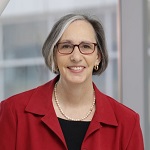 The relationship between a mentor and a mentee can be powerful and transformative, for both parties. So, when I was asked by colleagues at the National Cancer Institute (NCI) to share my thoughts during National Mentoring Month, I reached out to my mentee Emily Arner, Ph.D., a postdoctoral fellow in the Division of Hematology/Oncology at the Vanderbilt University Medical Center. The relationship between a mentor and a mentee can be powerful and transformative, for both parties. So, when I was asked by colleagues at the National Cancer Institute (NCI) to share my thoughts during National Mentoring Month, I reached out to my mentee Emily Arner, Ph.D., a postdoctoral fellow in the Division of Hematology/Oncology at the Vanderbilt University Medical Center.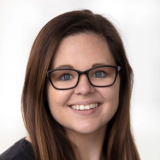
Here, we share some insights into our mentoring relationship and, more broadly, offer our perspectives and guidance for those embarking on a similar journey.
Can you tell us about your mentoring relationship? How did it get started?
Dr. Rathmell: I’ve always had the philosophy that if you do interesting work and provide an environment where trainees can explore ideas that are exciting to them, the right people will come. Emily has been in the lab for about two years now and has been a phenomenal lab member. She reached out at exactly the right time when our lab was pivoting strongly toward metabolism and the tumor microenvironment. Her interest in metastasis stood out as an exciting new way for us to think about the same issues. I won’t give away the punchline of Emily’s main work, but she’s been very effective in tying together concepts from mitochondrial metabolism, cellular fitness, and the energetics of tumor metastasis in highly innovative ways that made me think differently about kidney cancer metastasis.
Dr. Arner: I had a unique experience when it came to selecting a postdoc lab. During my third year of graduate school, I was awarded an NCI F99/K00 which funded my last two years of grad school at UT Southwestern and my first four years as a postdoc. With this award came guidelines for the timeline and criteria for selecting a lab that would set me up for success.
With the support of my program officer and my grad school mentor, I began searching for my postdoc mentor about a year before my Ph.D. graduation. I first looked for cancer researchers with decent publications, but I also considered locations/institutions where I could see myself thriving, both personally and professionally.
After I narrowed my list down to about five labs, I started cold emailing professors with my CV asking for a job! Kim was the first person who responded to my email, and we set up an initial call for the following week. Although short (she was very busy as the Chair of the Department of Medicine), after our first Zoom call, I had so many ideas and hypotheses in my head.
From there, I interviewed over Zoom (thanks, COVID) with Kim, Jeff [Dr. Jeff Rathmell], and the combined R^2 labs. After I gave my talk, people had many questions and seemed genuinely interested and engaged. During my one-on-ones, the people were so kind and overwhelmingly positive about the lab, colleagues, and Kim and Jeff.
My last meeting was with Kim, and I asked a lot of questions about my goals, data sharing, mentoring style, conferences, and how independently I would be able to work. I came off that call feeling so excited—it was just a gut feeling that it was the right fit.
Before she left to become the NCI director, I had just finished up my second year as a postdoc in Kim’s lab. In those two years, she really allowed me to develop as an independent scientist and unconditionally supported me both professionally and personally.
How has mentoring played a role in your personal and professional development?
Dr. Rathmell: I apply the same mentorship principles that I’ve been fortunate to experience on the receiving end from my own mentors. Learning how to ask exciting questions that you can address to impact our fundamental understanding of cancer is a hard and thrilling (and powerful) skill combination. Our job as mentors is to help our mentees take that to the next level—to be rigorous, to be able to communicate the science effectively, and to be successful and effective as a scientist.
The secret sauce of mentorship, though, is blending career mentorship with being there for the rest of life. It’s rewarding to see young cancer researchers blossom scientifically, but it’s a special relationship when you are there also to celebrate and travel life’s journey with them.
Dr. Arner: I’ve been very lucky in the mentor department for my career thus far. I serendipitously fell into a paid lab internship at a local hospital in Pennsylvania during high school, studying brain cancer. Before this, I didn’t even know that scientists were real outside of movies. My PI was fresh out of his postdoc and took me under his wing—he really changed my life. He taught me all the basics, from reading papers and searching on PubMed, to designing experiments. I fell in love with research and went on to major in biochemistry/molecular biology in undergrad. I also became the first person in my family to graduate from college.
From there, I’ve had many mentors that have supported me on my path towards becoming an independent investigator. During my Ph.D. studies at UT Southwestern, my mentor, Rolf Brekken, encouraged me to explore projects that interested me and to follow the science. He’s also the mentor that introduced me to the F99/K00 funding mechanism and encouraged me to apply.
I think all of my past experiences and mentors brought me to both Vanderbilt and to Kim’s lab. While in Kim’s lab for the past two years, I feel like as a scientist, I’ve exponentially grown both personally and professionally. Kim has this way of exuding energy and excitement into all her mentees, so you always feel excited and full of ideas after you talk to her (whether your research is working or not). This is something really special and that I hope to emulate as I transition to becoming a mentor myself in the future.
The period following undergrad and grad school represents some of your most transformative years. When you spend so much of your time working in a highly competitive and demanding career, it is so vital to have supportive, passionate, and encouraging mentors and people around you.
What are the top three things that you have learned from your mentoring relationship?
Dr. Rathmell:
- Approach every day with enthusiasm.
- Be open to ideas from unexpected collaborations. (I’ve always loved when this happens, but seeing Emily develop exciting new ideas from working with a pancreatic surgeon, as well as from a student in the larger R^2 lab studying fever, showcases how a flexible approach can reveal the best results).
- Just dive in. I remember when Emily joined the lab, we had a bunch of grand plans that required reagents that took forever to show up. She didn’t wait, instead she started just exploring our tissue microarrays, testing out a new microscope we’d just gotten in the lab. She very quickly had a new resource and dataset that was helping everyone in the lab answer questions.
Dr. Arner:
- ASK QUESTIONS. At conferences, lab meetings, classes, to yourself. All the time.
- Be open. Share your struggles and your successes with your mentor. I can’t tell you how many times Kim turned what I thought were struggles into successes…
- Find collaborators and experts and create a network of people around you, both physicians and scientists. Team science is just better science.
What is your advice for someone looking to become a mentor or to find a mentor?
Dr. Rathmell: My own mentors are people who I still reach out to for advice, to bounce ideas off of, and to talk to from time to time. Working in science is like a big family. There’s the immediate family of the lab, as well as the extended family that you get together with at meetings, and who you celebrate with. People don’t realize how much energy we get from mentoring. I just love walking through the lab and seeing some fresh piece of data and hearing the excitement from Emily or one of the other lab members as they talk through what they’ve just found and what it might mean. My own postdoc mentor, Celeste Simon, went out of her way to spend some time every day in the lab sitting at a bench. I learned from her how important it was to make sure you had that face-to-face time that was unstructured.
I’ve also learned a lot about mentoring from Jeff Rathmell—the other half of R^2. We made a good pair—his style is down in the nitty gritty of the metabolism, where mine can be more in the clouds. But to the personal half of mentoring, he’s always gone out of his way to have lab members share a “fun slide” as the first slide in a presentation. It’s a great way to hear about what’s going on outside the lab—travel, hobbies, good places to eat, pets and kids—and to start a lab meeting smiling.
I know as an oncologist that life is short—making and getting the most out of it blends all the good stuff. It’s important that we can role model a life that is well-lived—for me that is mission driven, passionate, and exciting—and that we can help our mentees navigate the good times as well as tougher periods, and ultimately create the life that they want to live.
Dr. Arner: My advice to anyone looking for a mentor:
- Don’t be afraid to reach out and cold email!
- Be open about what your goals are, that way your mentor can help you in every way they can.
- Ask good questions, not only about their research, but about their mentoring style.
- Trust yourself to make the right decision. Sometimes things just feel right, and you have to trust your gut.
- Find somebody who cares about your well-being as a person first, then as a scientist.
 Have you received an award, a paper published or any other good news you would like to celebrate with our community? If so, please e-mail: kerry.w.vazquez@vanderbilt.edu. Newsletter header photo credit to Dr. Anna Vilgelm, “DNA Comets.” Articles and Pictures credit to VU and VUMC. All other photo credit to unsplash. Have you received an award, a paper published or any other good news you would like to celebrate with our community? If so, please e-mail: kerry.w.vazquez@vanderbilt.edu. Newsletter header photo credit to Dr. Anna Vilgelm, “DNA Comets.” Articles and Pictures credit to VU and VUMC. All other photo credit to unsplash.
|
![Medicine - Cancer Biology E-Newsletter [Vanderbilt University]](https://cdn.vanderbilt.edu/vu-URL/wp-content/uploads/sites/119/2017/11/19151037/cancer-biology-design-004.png)